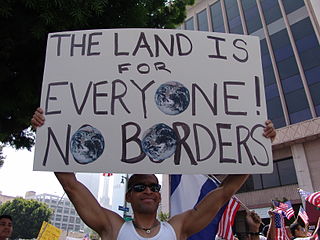Isaac Asimov & Immigration: Fiction as Social Commentary
The celebrated writer Isaac Asimov (1920-1992) was born in the Soviet Union to his great surprise. He moved to quickly correct the situation by stowing away in a piece luggage at the age of three. He settled down in New York City and by the age of eight he had acquired US citizenship. He wrote prolifically during his lifetime and his books can be found across the Dewey decimal system.
He is perhaps best known for penning the ‘Robot’, ‘Empire’, and ‘Foundation’ books which together paint a history of the future chronicling the early exploration of space, the future relationship between man and robot, and the rise and fall of galactic empires. For this Asimov is often thought as a science fiction writer, but I think this is misunderstanding the point of his fiction. Asimov’s books used science fiction as his setting, but could have worked just as well if they were set in colonial America.
It is better to think of Asimov as a social commentator, and as a social commentator he wrote quite extensively on immigration. One of his most explicit stories on immigration is the novelette, “Mother Earth” (published originally in magazine form and re-published in The Early Asimov).
The premise of the story is that Earth’s former space colonies, the Spacer worlds, have implemented immigrant quotas on Earth. Earth’s population has swelled to the billions and, as Asimov explains in-story, has become technologically stagnant since the brightest of mankind have left to space or are in the process of doing so. In other words Earth is experiencing a severe case of brain drain.
The Spacers, the descendants of the early space colonizers, view their Earth-bound cousins as a lesser sub-race. Even before explicit immigration quotas were put in place the Spacers had begun to genetically modify themselves to get rid of any undesired genetic traits. Their desire to restrict Earth migration is as such partly based on racism.
It is also partly based on economics. The Spacers themselves are more technologically advanced and so do not need ‘high skilled’ migrants from Earth. The use of robots has all but eliminated the need for ‘low skilled’ migrants. The only migrants that are sought after are those skilled in agricultural science. In a plot relevant point, food in the Spacer worlds lack ‘taste’ and there is a premium value in imported Earth food.
The novelette chronicles the conclusion outcome of this scenario. After negotiations to loosen the immigration quotas fail Earth and the Spacer worlds wage a war against each other. Earth is quickly defeated and has the worst possible punishment inflicted on it possible: closed barriers. The Spacers erect a barrier around the solar system and forbid any further migration from Earth.
The conditions of peace were unusual, perhaps unique, and under the force of an unprecedented humiliation, all the hordes of Earth seemed suddenly struck with a silence that came from a shamed anger too strong for words. The terms mentioned were perhaps best commented upon by a voice on the Auroran video two days after they were made public. It can be quoted in part:
“…There is nothing in or on Earth that we of the Outer Worlds can need or want. All that was ever worthwhile on Earth left it centuries ago in the persons of our ancestors.”
“They call us the children of Mother Earth, but that is not so, for we are the descendants of a Mother Earth that no longer exists, a Mother that we brought with us. The Earth of today bears us at best a cousinly relation. No more.”
“Do we want their resources? Why, they have none for themselves. Can we use their industry or science? They are almost dead for lack of ours. Can we use their man power? Ten of them are not worth a single robot. Do we even want the dubious glory of ruling them? There is no such glory. As our helpless and incompetent inferiors, they would be only a drag upon us. They would divert from our own use food, labor, and administrative ability.”
“So they have nothing to give us but the space they occupy in our thought. They have nothing to free us from but themselves. They cannot benefit us in any way other than in their absence.”
“It is for that reason that the peace terms have been defined as they have been. We wish them no harm, so let them have their own solar system. Let them live there in peace. Let them mold their own destiny in their own way, and we will not disturb them there by even the least hint of our presence. But we in turn want peace. We in turn would guide our own future in our own way. So we do not want their presence. And with that end in view, an Outer World fleet will patrol the boundaries of their system, Outer World bases will be established on their outermost asteroids, so that we may make sure they do not intrude on our territory.”
“There will be no trade, no diplomatic relationships, no travel, no communications. They are fenced off, locked out, hermetically sealed away. Out here we have a new universe, a second creation of Man, a higher Man…”
-Mother Earth by Isaac Asimov
In the epilogue and further installments of series we learn the outcome of this closed border policy is disastrous for both sides. The Spacer worlds begin to deteriorate without Earth migrants. Earth migrants, it turned out, were those most adventurous when it came to space exploration. Without the entrepreneurial drive of migrants space exploration ceases along with technological advances. Meanwhile the racial policies the Spacers have been following come back to haunt them when they realize that they’ve been retarding their ability to adapt to space.
In the aftermath of the war Earth finds itself taken over politically by those who believe the only answer to ‘overpopulation’ is population control. Balance is only restored when open borders between Earth and the Space worlds is reestablished in the future and a new wave of space exploration migration begins. Open borders, it turns out, is necessary for humanity to flourish across the stars.
Readers may wonder why I have chosen to share this story. Am I, as Murray Rothbard called some of his detractors, a space cadet trying to trivialize the open borders movement by infusing it with unneeded futurism? No, as I noted above, Asimov’s stories are better viewed as social commentaries. As I’ve written before, there is a place in the movement for philosophy-based arguments in favor of open borders and by all means we should continue down that path. We must however also package our arguments to reach different audiences.
One such method of packaging our arguments is through the use of fiction.
The beauty of fiction is that, when properly written, it can be enjoyed for its own sake while still providing a message. Paul Krugman, whom my co-blogger John Lee has previously written about, is a big fan of Asimov’s fiction despite being a moderate on immigration.
Krugman, who credits Asimov for his choice to enter economics and who wrote a foreword for new copies of the Foundation series, agrees with me that Asimov isn’t a science fiction writer. In Krugman’s words:
Maybe the first thing to say about ‘Foundation’ is that it’s not exactly science fiction—not really. Yes, it’s set in the future, there’s interstellar travel, people shoot each other with blasters instead of pistols and so on. But these are superficial details, playing a fairly minor part in the story.The‘Foundation’ novels are about society…
Asimov himself, in his non-fiction writings, wrote on the dangers of ‘over population’ despite the solid pro-open borders message of his books. That is how powerful good fiction can be. Asimov might have been wrong on economics when he consciously wrote on the topic, but in his fiction writing he got it right. As most fiction writers will point out, it is not uncommon for a story to ‘write itself’ or for a character to become alive on its own after you lay the groundwork.
I propose as such, as a possible avenue of open border advocacy, the pursuit of fiction dealing with open border themes. There are several pieces of fiction that deal with immigration, and I recommended several films this past Christmas that did just that, but few with an explicit open border bent exist. The trouble of course, and here too most fiction writers will collaborate with me, it is difficult to set out to cover a specific topic in fiction. It is easy to begin writing about X and find yourself covering Y as the story evolves. Nonetheless it is a pursuit worth pursuing.
I close by emphasizing that this article should not be taken to mean that we should cease writing in a given direction. The open borders movement has seen its birth in a certain sub-population and I argue simply in favor of adopting our advocacy efforts to attempt to capture readers from other sub-populations.
Read More In This Series
This is an ongoing series on ideas on how the open borders movement should proceed next.
What should be next for the Open Borders movement? by Michelangelo Landgrave
Philosophers, Wonks, and Entrepreneurs by Vipul Naik
What Open Borders Can Learn from the Abolition of Slavery by Nathan Smith
Why the Open Borders Movement Should (Mostly) Avoid Emulating the Gay Marriage Movement by Nathan Smith
Immigration Comics by Michelangelo Landgrave
Related
Orson Scott Card on Immigration by Evan


